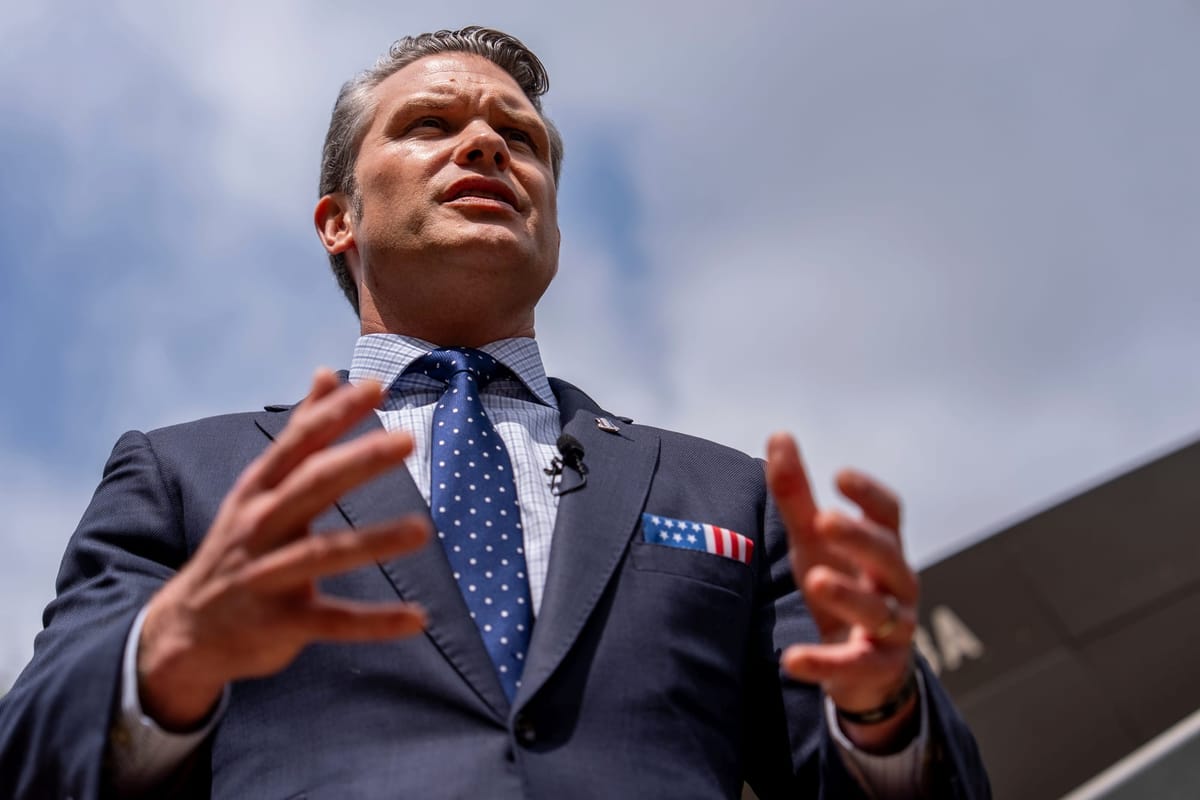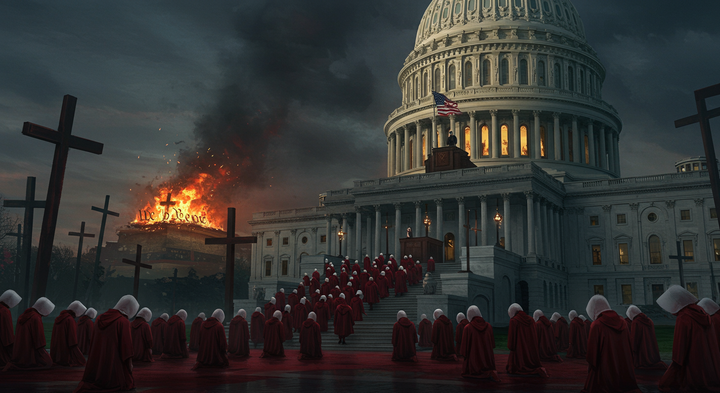When “Combat Readiness” Is a Cover for Christian Nationalism
Pete Hegseth’s move to dissolve the Pentagon’s women’s advisory panel isn’t about “combat readiness.” It aligns with a broader push that pits Christian nationalism and women’s rights against each other—and risks erasing women’s voices from military policymaking.

Opinion: This article is an opinion commentary. It reflects the author’s analysis and interpretation of events based on publicly available information.
When Defense Secretary Pete Hegseth announced he was dissolving the Defense Advisory Committee on Women in the Services (DACOWITS) this week — a panel that has advised the Pentagon on policies affecting women since 1951 — his justification was as predictable as it was disingenuous. He accused the committee of pursuing a “divisive feminist agenda” and claimed its work was undermining “combat readiness.”
But scratch beneath the surface, and the story isn’t about military readiness at all. It’s about ideology — specifically, an ascendant Christian nationalist worldview that seeks to reassert traditional gender hierarchies under the guise of neutrality, order, and strength.
A 70-Year Legacy Erased — and Rebranded as “Divisive”
For over seven decades, DACOWITS has played a pivotal role in shaping military policy: from integrating women into combat roles to recommending better-fitting equipment, expanding maternity care, and addressing harassment. Its work wasn’t fringe — roughly 98% of its recommendations were adopted by the Pentagon.
To label that record as “divisive” isn’t just ahistorical — it’s Orwellian. What Hegseth is really saying is that the very act of centering women’s experiences and needs is now seen as a political threat.
This move doesn’t exist in a vacuum. Earlier this year, Hegseth canceled a women’s leadership initiative, using similar rhetoric. And the purge fits neatly into a broader campaign across federal agencies to gut diversity, equity, and inclusion programs, all while claiming to be “returning to basics.”
But “basics” here is a euphemism — for returning to a time when women were expected to stay silent, subordinate, and sidelined.
Christian Nationalism and Women’s Rights Are on a Collision Course
The disbanding of DACOWITS makes far more sense when viewed alongside Hegseth’s own words and actions. Just weeks before this decision, he publicly amplified a sermon from Christian nationalist pastor Doug Wilson — a man who has argued not only against women in combat, but against women voting at all. If that sounds extreme, it’s worth remembering that Hegseth has publicly boosted voices calling for an end to women’s suffrage — a deeply revealing moment we explored in this analysis of his ties to the Christian Reconstructionist movement.
That’s not a smear. It’s documented fact. And it’s not an isolated moment: Hegseth has repeatedly platformed figures who espouse patriarchal, theocratic visions of society — visions in which women are “helpmeets,” not decision-makers, and certainly not generals.
The policy pattern follows the ideology. You don’t need a leaked memo labeled “Operation Rollback Women’s Rights” to connect the dots. First, eliminate leadership programs for women. Then, dissolve the committee that ensures their representation in policy. Next, rewrite the standards to appear “gender neutral,” knowing full well they were designed for male physiology. Each step is bureaucratically framed, but ideologically coherent.
At its core, this fight illustrates how Christian nationalism and women’s rights are colliding inside America’s most powerful institutions. Hegseth’s actions are not about eliminating “divisiveness” — they’re about deciding whose voices count in shaping national defense and whose don’t.
“Sex-Neutral Standards” Are the New Dog Whistle
Hegseth’s defenders will say this is all about fairness — that the military should have one standard for all. It’s a neat talking point, but it ignores reality. Women face unique challenges in service — from equipment designed for male bodies to higher injury rates, reproductive health issues, harassment, and retention obstacles. DACOWITS existed precisely to address those systemic gaps.
To pretend those differences don’t exist under the banner of “neutrality” is to ensure policies continue to privilege the status quo — and the status quo overwhelmingly benefits men.
It’s the same rhetorical trick used to attack affirmative action, gut Title IX protections, or oppose voting rights: redefine equality as sameness, then weaponize that definition to dismantle the very mechanisms that made equality possible.
The Larger Project: Power, Control, and Patriarchy
Seen individually, these decisions might look like culture-war skirmishes. Seen together, they form a coherent strategy: reshape American institutions to reflect a patriarchal, Christian nationalist vision of society.
That project doesn’t require banning women from voting overnight. It begins by undermining the policies and programs that empower them. It thrives on rhetoric that recasts advocacy as “ideology” and equity as “division.” And it relies on plausible deniability — “we’re just focused on readiness” — even as its actions consistently shrink women’s space in public life.
We’ve traced this ideological through-line before — from Project 2025’s blueprint for a theocratic government to Doug Wilson’s “Handmaid’s Tale”-inspired calls for a biblically enforced patriarchy. (Read our deep dive here.)
The danger isn’t just symbolic. When women’s perspectives are erased from military policymaking, real-world consequences follow: worse retention, overlooked health needs, higher attrition, and less effective forces. The irony is that by gutting the very structures designed to make the military stronger, Hegseth’s crusade against “wokeness” could end up weakening it.
Ultimately, the question is whether Christian nationalism and women’s rights can coexist in a democracy built on equality — or whether one must always diminish the other to survive.
The Bottom Line
It’s tempting to treat moves like this as partisan theater — another skirmish in America’s endless culture wars. But that misses the deeper story. This isn’t just about one advisory committee or even about the Pentagon. It’s about whether America will continue moving toward a pluralistic, representative democracy — or slide back toward a system where power is concentrated in the hands of those who believe God ordained them to rule.
When Pete Hegseth tells you this is about “combat readiness,” believe him — just not in the way he intends. The battle isn’t on foreign soil. It’s over who belongs in the ranks of power here at home.




Comments ()